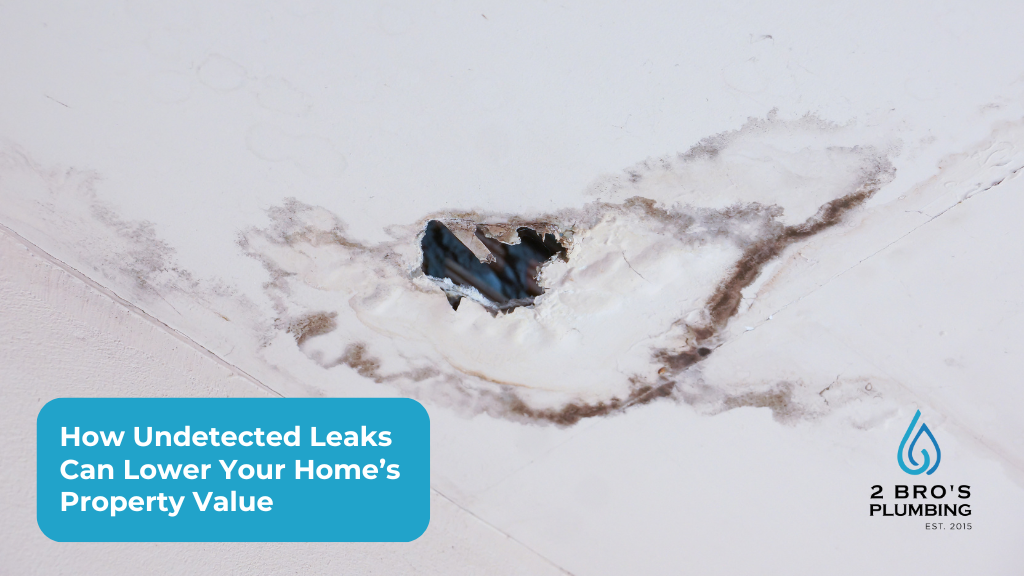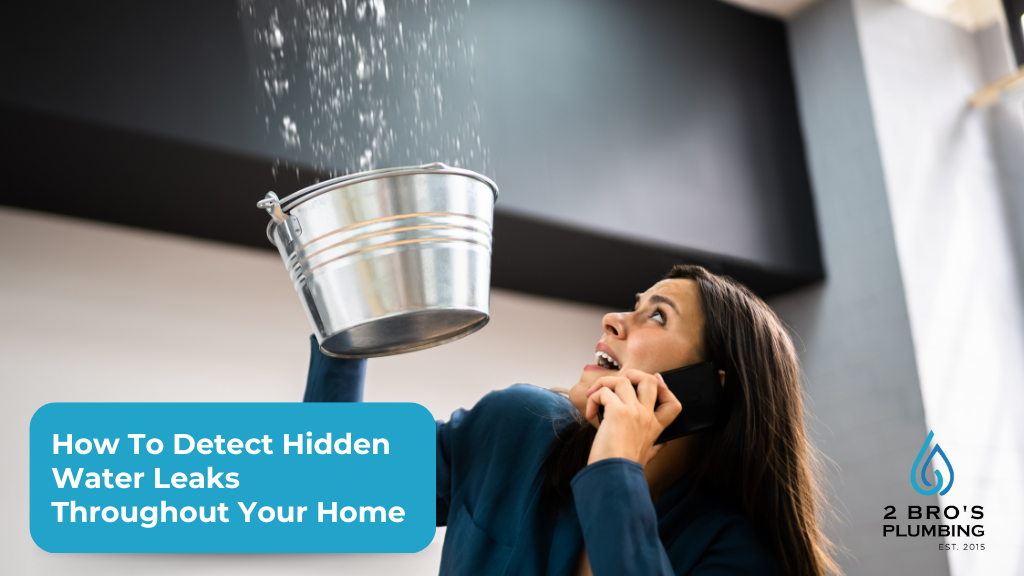Leaks in your home can be a lot more than just a nuisance. They can create a property-damaging, money-draining, stress-inducing dilemma. Of course, all homeowners want to live within clean and comfortable confines. Understandably, they’d also like to ensure that the value of their homes only appreciates in the event that selling becomes an option. It’s important to know that the havoc wreaked by undetected leaks can erode your property’s worth.
Structural damage puts your foundation at risk.
Let’s suppose you have a water leak in your home that goes unnoticed for weeks on end. Potentially, water can seep into the home’s foundation, leading to significant structural damage. When the foundation is compromised, it can create cracks and even shifts in the structure of the house. Naturally, this type of damage needs expensive repairs. However, it can also present a red flag to potential buyers. When word of water damage gets out to new home seekers, it discourages them from making offers on the property.
“Trust us: You don’t want water damage,” warns RBC Insurance, “Not only is it costly to repair, but it can also affect the safety of your home…Long-term exposure to moisture weakens the floors, walls, and ceilings. Wood rots, concrete cracks, and metal corrodes, which can potentially cause structures to collapse.”
Mould creates health hazards for the home’s inhabitants.
The last thing you want is for your home to make its inhabitants sick. Of course, potential home buyers are going to want to stay away from any potential health risks when considering new properties. Undetected leaks can lead to the pooling of water behind walls, under the floors or even in the attic. The puddles are known for being breeding grounds for mould. Homes with a history of mould issues often sell for less.
“The inhalation of the mould, fragments of the moulds, or spores can lead to health problems or make certain health conditions worse,” alerts the Canadian Centre for Occupational Health and Safety (CCOHS), “In addition, many of these moulds make ‘mycotoxins’. Mycotoxins are metabolites or by-products from the moulds that have been identified as being toxic to humans. These toxins can lead to allergic or respiratory problems.”
Damaged interiors ruin the aesthetic appeal of your home.
All homes that go on sale have to be shown to the public. Real estate agents who are adept in staging homes often help their owners to elicit numerous offers. Hiding water damage can be difficult. If you have undetected leaks in your home, you may be in line for stained ceilings and walls, warped floors and peeling paint. These visual signs of damage can make your home appear poorly maintained and unattractive to potential buyers. Homes that require significant repairs are often sold at a lower price.
According to Scott Dylan Westerlund of Angi, hardwood floors can be damaged with any amount of pooling water left to sit for a day or so. “Drywall fares a bit better, as there are processes to dry it out, but if the components retain more than one percent of moisture, you’ll need to replace them,” he writes.
For more expert plumbing advice or help with any plumbing issues in your home, please don’t hesitate to give your friends at 2 Bro’s Plumbing a call at 905-556-0790. You may also email us at admin@2brosplumbing.ca!



